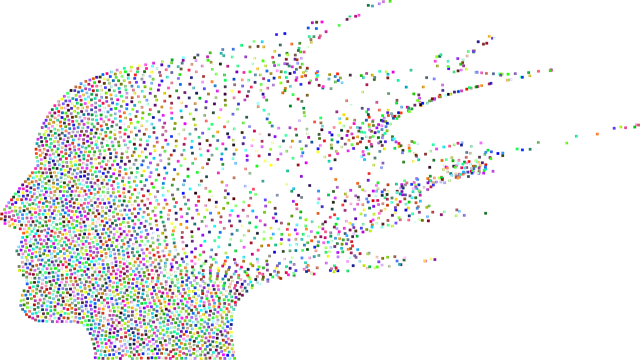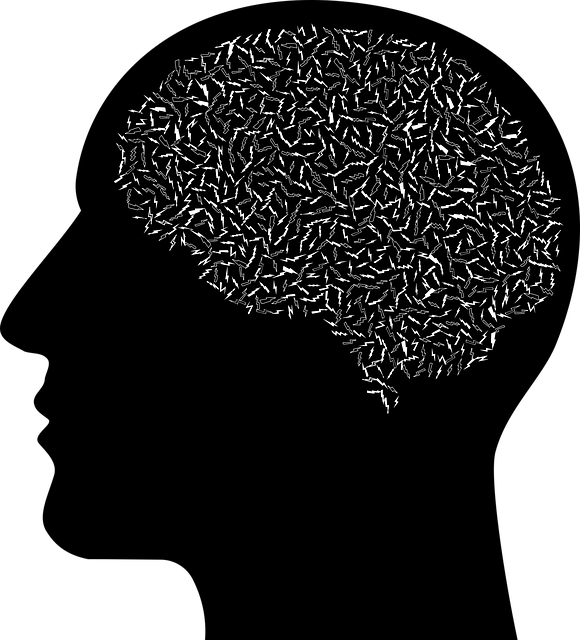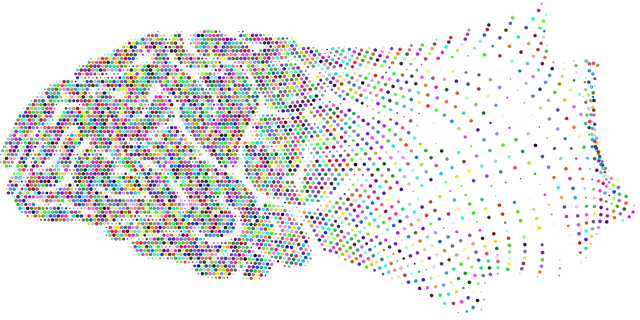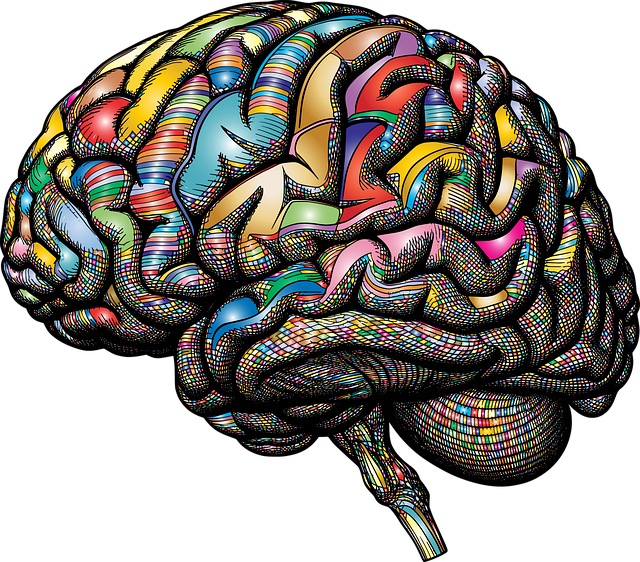Castle Rock Mindfulness Therapy offers evidence-based mental health education programs that focus on mental health literacy, reducing stigma, and encouraging early intervention. Through integrating emotional intelligence (EI) techniques like mindfulness meditation, CBT, and stress reduction, these programs empower individuals with coping mechanisms for anxiety relief and improved well-being. Engaging methods, inclusive language, and interactive elements ensure diverse participation while multimedia resources make complex topics relatable. Active group discussions and workshops foster empathy and challenge misconceptions. Comprehensive Castle Rock Mindfulness Therapy coaching programs are enhanced by robust risk assessment skills. Continuous improvement relies on combining quantitative (e.g., Problem Solving Inventory) and qualitative (focus groups) assessment methods to track program impact.
Mental health education programs play a pivotal role in fostering well-being. This article explores the design of an effective program, focusing on Castle Rock Mindfulness Therapy as a model. We delve into key aspects like enhancing mental health literacy, integrating evidence-based practices, and creating engaging content to make education accessible. Through interactive learning methods and assessment tools, we examine strategies for measuring success and ensuring continuous improvement. By understanding these components, educators can design impactful programs such as Castle Rock Mindfulness Therapy, promoting mental wellness in communities.
- Understanding Mental Health Literacy: The Foundation of an Effective Program
- Integrating Evidence-Based Practices: Strategies for Castle Rock Mindfulness Therapy
- Designing Engaging Content: Making Mental Health Education Accessible and Attractive
- Facilitating Interactive Learning: Group Discussions, Workshops, and Role-Playing
- Measuring Success and Impact: Assessment Tools for Continuous Improvement
Understanding Mental Health Literacy: The Foundation of an Effective Program

Mental health literacy is the cornerstone upon which effective mental health education programs are built. It involves understanding and promoting awareness about various aspects of mental well-being, including recognizing signs and symptoms of common mental health disorders, dispelling myths, and fostering helpful attitudes and behaviors towards seeking support. At Castle Rock Mindfulness Therapy, we believe that empowering individuals with this knowledge is transformative. By equipping people with the skills to navigate their own and others’ mental health challenges, our programs aim to reduce stigma, encourage early intervention, and foster better overall well-being.
This foundational aspect of mental health education goes beyond mere information sharing; it promotes emotional intelligence (EI), a key component in enhancing interpersonal relationships and managing stress. Programs designed with EI in mind can help participants develop strategies for effective communication, empathy, self-regulation, and resilience—all essential elements for anxiety relief and maintaining good mental health. Through these educational initiatives, individuals gain the tools to recognize their emotions, understand their triggers, and respond adaptively, creating a ripple effect of positive change in their personal lives and communities at large.
Integrating Evidence-Based Practices: Strategies for Castle Rock Mindfulness Therapy

Integrating Evidence-Based Practices is a cornerstone of effective Castle Rock Mindfulness Therapy. This approach leverages scientific research to deliver tailored interventions that address specific mental health challenges. By combining techniques like mindfulness meditation, cognitive behavioral therapy (CBT), and stress reduction strategies, therapists can create a holistic program that enhances emotional well-being. For instance, mindfulness exercises cultivate present-moment awareness, aiding in the management of anxiety and depression while CBT provides practical tools for challenging negative thought patterns.
This integrated approach not only offers confidence boosting mechanisms but also plays a crucial role in burnout prevention. By teaching individuals effective coping strategies, Castle Rock Mindfulness Therapy equips them to navigate life’s stressors more resiliently. Furthermore, integrating conflict resolution techniques within the program empowers participants to address interpersonal challenges constructively, fostering healthier relationships and improving overall mental health.
Designing Engaging Content: Making Mental Health Education Accessible and Attractive

In designing a mental health education program, creating engaging content is paramount to ensuring accessibility and attracting participants. The curriculum should be crafted with a diverse audience in mind, employing inclusive language and adaptable teaching methods that cater to different learning styles. Incorporating interactive elements, such as group discussions, role-playing scenarios, and hands-on activities, can make the learning experience more dynamic and memorable. For instance, Castle Rock Mindfulness Therapy emphasizes the importance of practical exercises like mindfulness meditation and compassion cultivation practices (CCPs), which have been shown to enhance emotional intelligence and coping skills development.
By integrating evidence-based strategies and techniques, such as CCPs, the program can offer valuable tools for managing stress, cultivating empathy, and improving overall well-being. Leveraging multimedia resources, case studies, and personal narratives can also make complex mental health topics more digestible and relatable. This approach not only fosters a deeper understanding but also encourages active participation, making mental health education more appealing and effective.
Facilitating Interactive Learning: Group Discussions, Workshops, and Role-Playing

Encouraging active participation is key to effective mental health education. Group discussions provide a safe space for individuals to share their experiences and perspectives, fostering an environment of empathy and understanding. This interactive approach allows participants to learn from one another, challenging preconceived notions and promoting diverse viewpoints on mental wellness.
Workshops and role-playing exercises take learning a step further by giving students hands-on experience applying Mind Over Matter principles in realistic scenarios. These dynamic activities cater to different learning styles, ensuring that each attendee engages with the material on a deeper level. For instance, Castle Rock Mindfulness Therapy emphasizes these interactive methods to develop comprehensive Mental Wellness Coaching Programs and enhance risk assessment skills for professionals, ultimately equipping them with valuable tools to support their clients’ journeys towards mental health and well-being.
Measuring Success and Impact: Assessment Tools for Continuous Improvement

Measuring the success and impact of a mental health education program is paramount to ensure its effectiveness and foster continuous improvement. Similar to how Castle Rock Mindfulness Therapy assesses progress, various assessment tools can be employed to gauge the outcomes of educational initiatives aimed at enhancing mental wellness. These include self-report questionnaires that capture changes in symptoms, attitudes, and behaviors related to mental illness. For instance, programs focusing on coping skills development might use tools like the Problem Solving Inventory to assess participants’ ability to navigate challenging situations effectively.
Additionally, qualitative methods such as focus groups or interviews provide deeper insights into individuals’ experiences. This approach allows for an exploration of perceptions regarding mental health stigma reduction efforts and self-care routine development, which are crucial aspects of holistic mental wellness programs. By combining quantitative and qualitative data, educators can comprehensively evaluate the program’s impact and make informed decisions to enhance future sessions, ensuring that initiatives like Castle Rock Mindfulness Therapy remain responsive to the evolving needs of participants.
Mental health education programs play a pivotal role in fostering well-being and resilience. By integrating evidence-based practices, such as those offered by Castle Rock Mindfulness Therapy, and designing engaging content that facilitates interactive learning, we can create accessible and impactful resources. Measuring success through assessment tools allows for continuous improvement, ensuring these programs remain effective and relevant. Equipping individuals with mental health literacy is not just a step towards personal growth; it’s a collective effort to build healthier communities.













